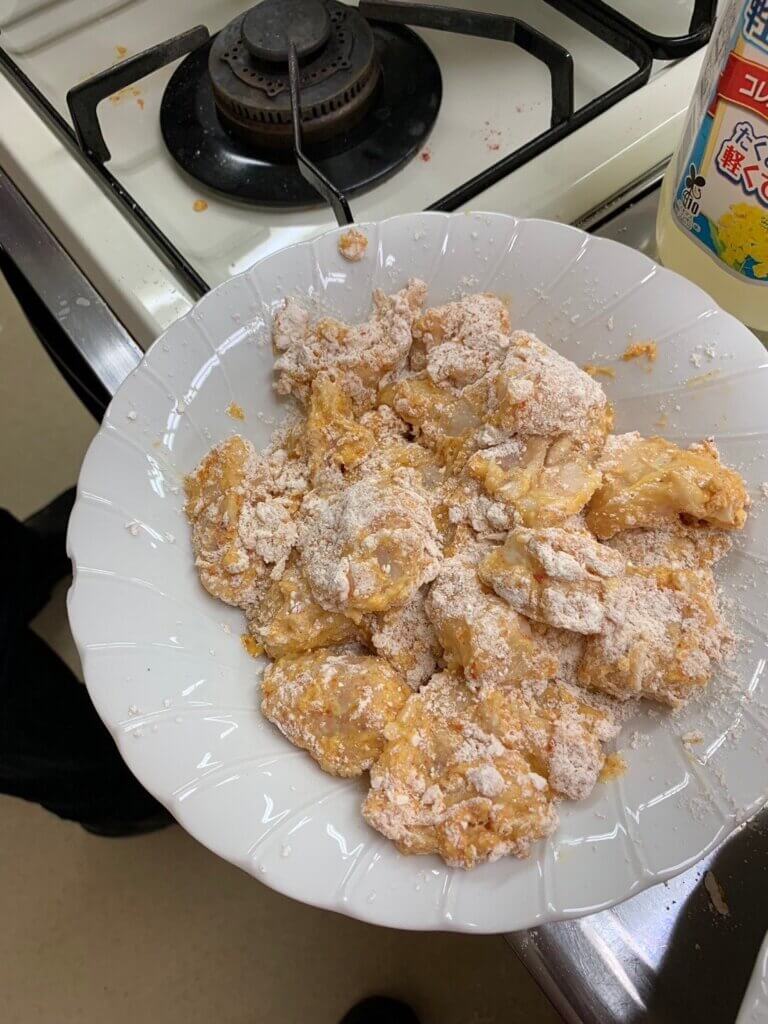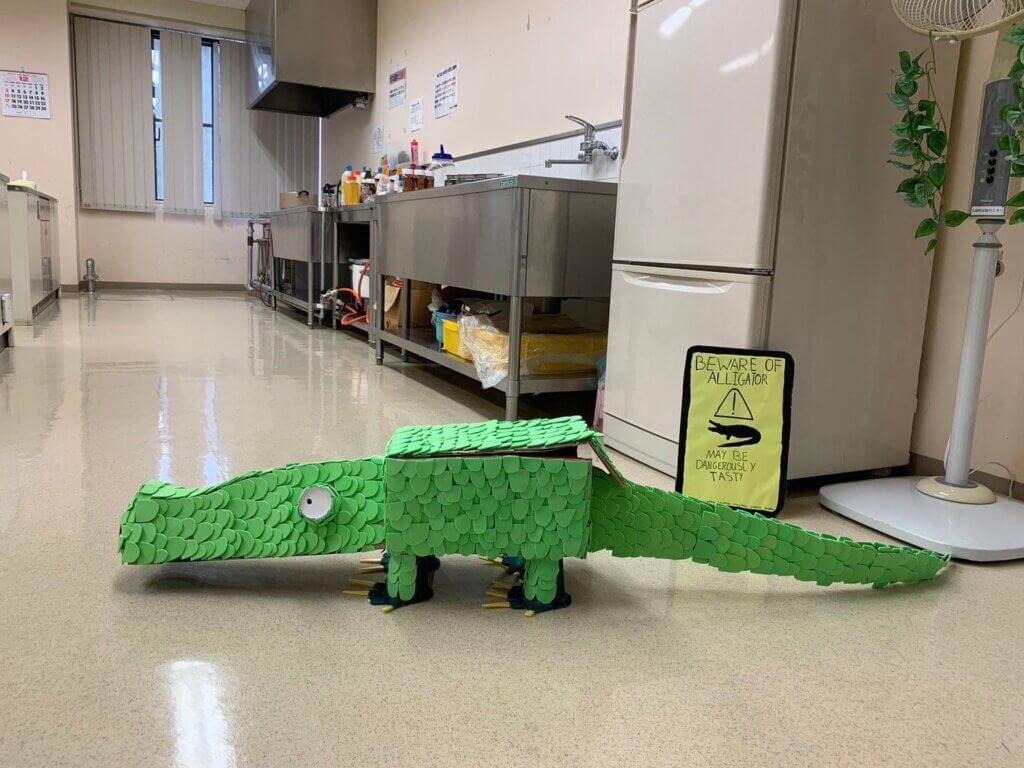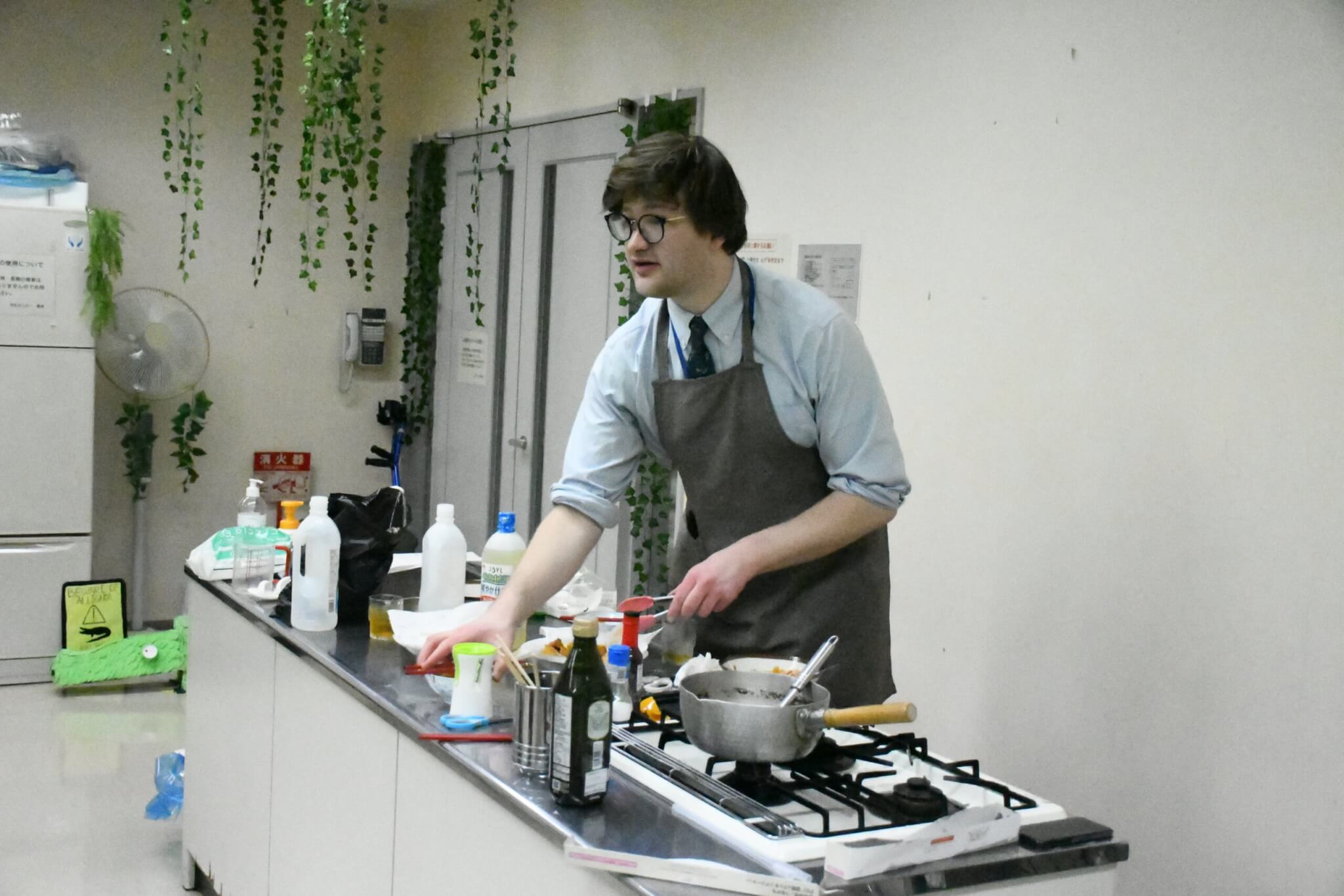By Jack Brox McCarthy
When I got my current job in Japan, it was 2021 and we were all still deep in the pandemic. In fact, after being hired, I wasn’t actually allowed to enter the country to start work for another year. Like many young people, I had to wait for life to get started.

While I bided my time working as a substitute teacher and then a paraprofessional, one of my coworkers-to-be had a quest for me. Aside from my work teaching English and in town government, they wanted me to run some American cooking classes.
My challenge: find one iconic dish from each of the 50 states.
My mother recommended chocolate chip cookies since they were invented in Massachusetts. “Those aren’t big in Japan, are they?” Maybe they’re not big, but you can definitely get them in any grocery or convenience store. That which is familiar to one is not always foreign to another. If you’re looking for Concord grape juice, you don’t have to look far — we have sparkling and still in every store.
On one of my first nights in Japan, at an office dinner, a coworker fished an egg out of a soup bowl with her chopsticks and jokingly said, “Jack! Eggs! You don’t have these in America, do you?”
I tried to feign confusion at the concept of eggs, but I don’t think anyone bought it.
‘Grocery Store Master’
Finding recipes close to home was easy and didn’t exactly require research. Clam chowder from Massachusetts, apple cider donuts from Vermont, and blueberry pie from Maine. But farther afield required a little bit more digging.
I started polling coworkers in the teacher’s lounge. Everyone had a recipe and a story to share, either from a long-ago family trip or a childhood memory of home cooking. She-crab bisque (wait — why only she-crabs?), slippery dumplings (wait, how are they more slippery than normal dumplings?), and Rocky Mountain oysters (if you don’t already know, don’t look it up).
I will admit it — I like rich foods. Once I got to Japan and started cooking for my friends and coworkers, my mother, ever health-conscious, bemoaned, “You’re not making them think you eat like this at home, do you?” I think it was possum pie that broke her; an Arkansas delight a science teacher I worked with recommended. Buttery pecan crust with a cream cheese layer, a chocolate mousse layer, and a whipped frosting layer.
Oh, yeah. It’s good.
She has at least seemed pleased that my time abroad has increased my cooking abilities. I confess that I’m not sure if that’s the case. However, I have become much better at finding obscure ingredients in Japanese grocery stores. I’ve even earned the moniker “The Grocery Store Master” from some of my friends, though this achievement, too, may be undeserved. Replace “Grocery Store Master” with “The Substituter.”
Example: you can’t buy fresh cranberries where I am, so when I wanted to make cranberry sauce, I had to use grape juice to rehydrate dried cranberries.
Why gator?
Making my list was how I first came to Gator Bites. For the uninitiated, Gator Bites are a piece of Cajun cooking that comes to us from Louisiana, but you can also get them in Florida and other parts of the coastal South.
When I came to Japan and got the chance to do a regional American cooking class on anything I wanted, I picked gator. This, of course, entailed shipping a whole lot of gator from Australia. Not as authentic as gator from America, but none of the online Cajun grocers I found would ship to Japan (not that I blame them).

But I should back up: When I say “Gator Bites,” questions immediately arise.
Wait! Alligator? Yup. What does gator even taste like? Tastes like chicken. But it looks like fish. But does it taste good? Like I said, tastes like chicken… but it gets tough super quick, so don’t fry it too long. Jack, you’re crazy! Yes. But why gator?
I think it would have been easy to start with a hamburger cooking class. But food, more than anything, is a fantastic vehicle with which to tell a story, especially in America, where food represents the constellation of cultures — both immigrant and indigenous — that call it home. My mom once told me about when her Irish-American mother first went to her Lebanese-American in-laws’ house to learn their recipes. The food she went on to grow up with was the offspring of this meeting.
Tastes like… karaage?
There is no better way to tell an American story than with food, and you can’t teach someone how to make Gator Bites without first talking about the blend of cultures and cuisines you can find in parts of the South — the foods they brought from their homelands and those they found when they arrived.
When we put together our spice mix, we had to discuss the difference between Creole and Cajun and the associated culinary associations. Plus, at the risk of sounding like a cynic, “COME TRY ALLIGATOR MEAT!” is a great way to build interest in your American cooking classes.

We made gator bites twice. Once in an adult class and once with some of my high school students. I confess that the first time, we definitely overcooked them, but the second time they came out perfectly.
It did take the wind out of my sails, though, when one of my students took a bite and said, “Oh! This is just like karaage (Japanese fried chicken).” That which is familiar to one is not always foreign to another.
Heck, from the karaage comparison, my kids may have been more familiar with the taste of gator bites than the Yankee teaching them.
Inquiring minds in Nanae want to know
What do you eat at home? What is authentic American home cooking to you? I have more American cooking classes coming up and would love suggestions. Reach me at jackbm.in.japan@gmail.com.



